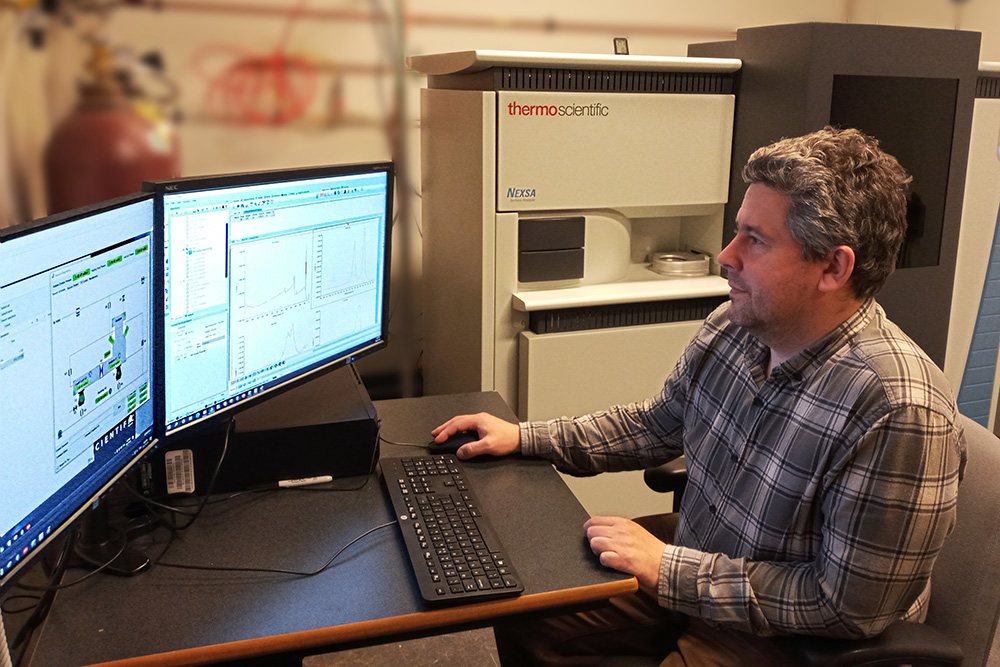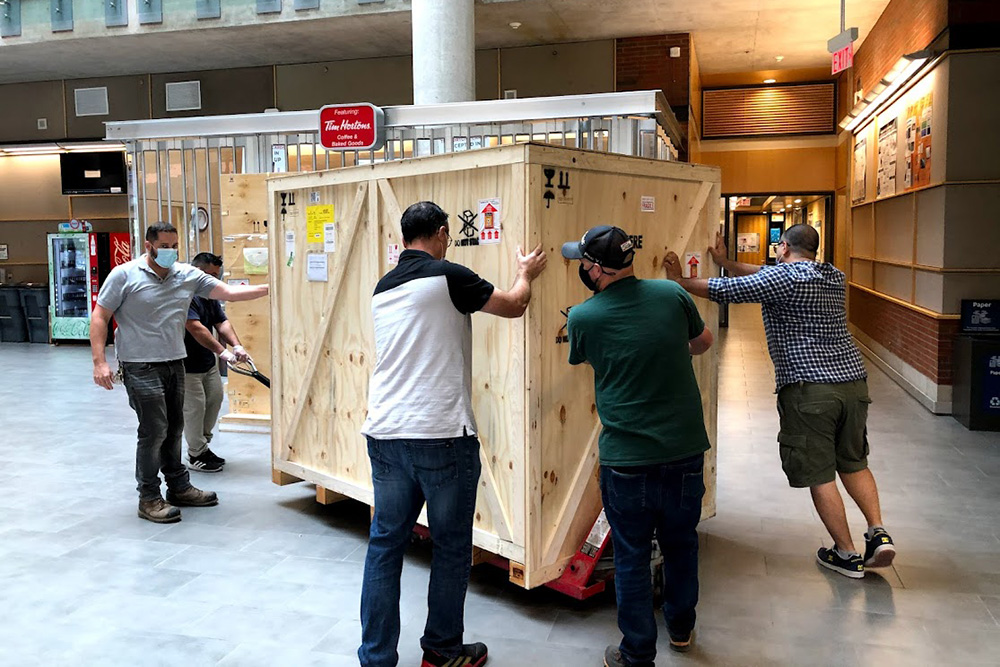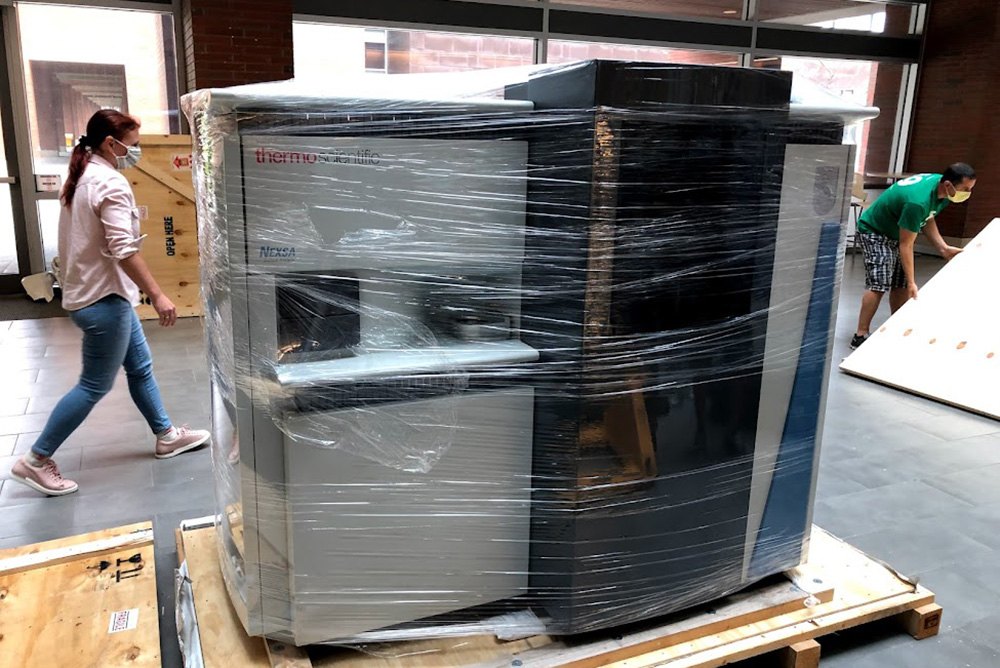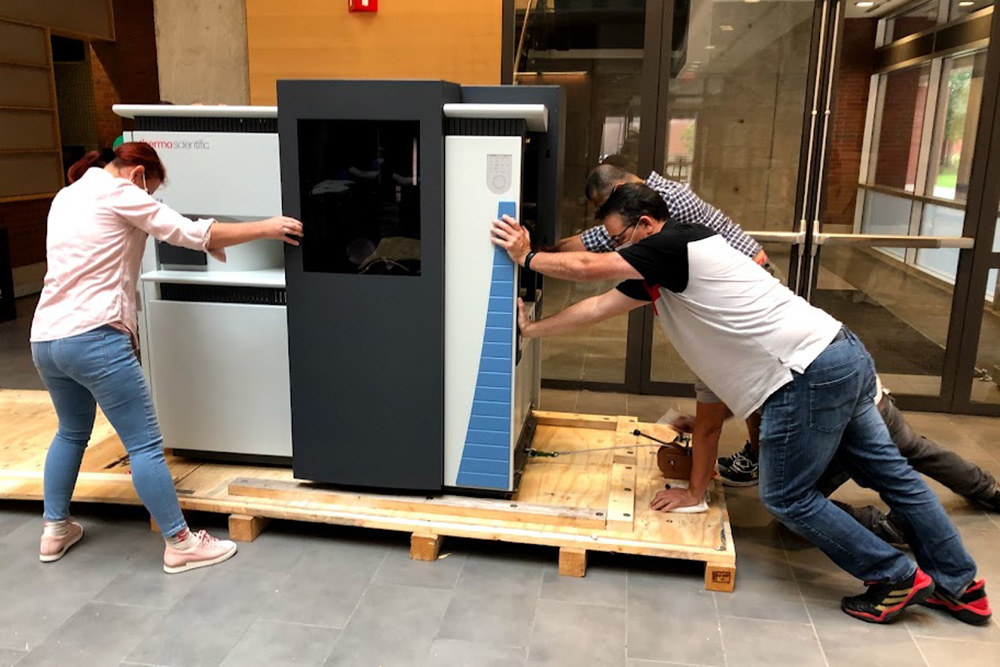Ontario Tech Faculty of Science lab’s research device is first of its kind in Canada
New X-ray photoelectron spectroscope that arrived during the pandemic puts Ontario Tech at the forefront of ‘nanoscale’ research
May 31, 2022

Ontario Tech University’s Faculty of Science is celebrating a new top-notch research tool to help scientists observe and understand chemical interactions at the smallest conceivable scale.
The Faculty of Science’s Materials Characterization Facility recently received an X-Ray photoelectron spectroscope (XPS), one of only three devices of its kind in the North America (Harvard University in Cambridge, Massachusetts, and NASA’s Kennedy Space Center in Cape Canaveral, Florida).
The arrival of the XPS instrument at Ontario Tech comes through a grant from the Canada Foundation for Innovation (CFI) John R. Evans Leaders Fund, the university’s largest CFI grant to date (valued at $397,675). An additional matching amount came from the Ontario Research Fund for Research Excellence.
Breaking down why studying materials at the tiniest scale is such a big deal
Imagine holding a typical toy marble in your hand. Now try to imagine that same marble shrinking more than a billion times: it would be so unbelievably small that you couldn’t see it. This tiny scale – the size of molecules, cells, atoms and proteins, is called ‘nanoscale’. It’s this size of material that the XPS can analyze, to help determine what elements materials are made of.
Nanotechnology is one of the fastest-growing areas of science. Scientists seek to connect atoms, like tiny LEGO blocks, in fascinating new ways to see what the possibilities are. The challenge of analyzing elemental composition is extremely important not only in medicine, health care, forensics and biology, but in the development of new alloys for aerospace and automotive industry, ’smart’ materials and catalysts.
The chemical industry relies on catalysts for the vast majority of its processes, such as for fertilizers, treating pollutants and oil refining, to name just a few.
The importance of analyzing elemental composition
In chemistry, the periodic table identifies 118 known elements (such as iron, oxygen and carbon). Precise analysis of elements is crucial for any area of science. The human body contains about 40 elements needed to maintain proper body function. For example, iron is the essential component of red blood cells that delivers oxygen to the body tissues.
However, an excess of iron in neuronal cells of the brain can be an indicator of Alzheimer’s Disease.
Elemental composition analysis is extremely important not only in medicine, health care, forensics and biology, but in the development of new alloys for aerospace and automotive industry, ‘smart’ materials and catalysts.
The design of modern catalysts that enable clean energy technology and the production of fine chemicals used in pharmaceutical industry requires a clear understanding of the oxidation state of each element in the material. XPS is the technique that can identify the specific elements and their oxidation state within a specimen of any origin.
Quotes
"Our new XPS instrument becomes the large-scale ‘anchor tenant’ of our lab space, unifying our research infrastructure and expertise under a single umbrella. The XPS dramatically advances our investigative capacity and moves Ontario Tech forward as an influential research leader. This resource is also important for our students because graduates with experience in XPS are in great demand in the growing high-tech job market."
- Dr. Brad Easton , Principal Investigator, Director, Materials Characterization Centre, and Professor, Faculty of Science
“This device combines several complementary research techniques, including Reflection Electron Energy Loss Spectroscopy that will allow us better understand the unique properties of the new materials we create. This could have potential applications for bendable electronics, renewable sustainable energy, and high-performance electrocatalysts."
- Dr. Olena Zenkina , Co-Principal Investigator, and Associate Professor, Faculty of Science
"This vital research instrument will help us probe and further understand the electronic properties crucial for semiconductors, photovoltaics and microelectronics."
- Dr. Franco Gaspari , Co-Principal Investigator, and Professor, Faculty of Science
“This is the largest Canada Foundation for Innovation grant in Ontario Tech’s history. The Faculty of Science’s new top-notch XPS instrument, similar to one recently installed at Harvard University, not only advances Ontario Tech’s nanoscale research and contributes to a core research faculty, our students will also gain experience in XPS, where these skills are in high demand in the tech job market.”
- Dr. Les Jacobs, Vice-President, Research and Innovation, Ontario Tech University
Media contact
Communications and Marketing
Ontario Tech University
communications@ontariotechu.ca






